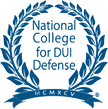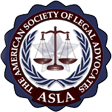Any drug trafficking charge in Seattle is serious, whether it is for trafficking marijuana, a prescription opioid, or meth. If you are facing drug charges in Washington, you need to contact the Seattle drug trafficking attorneys at Emerald City Law Group as soon as possible. We will protect your rights, prevent police overreach, and aggressively fight for your freedom.
Drug trafficking is more than the possession of a drug or even possession with the intent to sell. This type of offense can encompass a number of actions regarding controlled substances, including cultivation, manufacturing, transportation, importation, distribution, and sales. To be charged with drug trafficking is to be accused of participating in the creation, widespread distribution, and sale of a significant amount of drugs. Call a Seattle drug trafficking attorney today at 206-973-0407 to schedule a free and confidential consultation.
Washington Drug Laws
Washington’s Violation of the Uniform Controlled Substances Act (VUCSA) lays out the state-level criminal drug offenses. The Revised Code of Washington (RCW) 69.50.401 states it is unlawful for you to manufacture, deliver, or possess with the intent to manufacture or deliver any controlled substance. If you are caught manufacturing, delivering, or possessing drugs with the intent to undertake these actions, then you will be charged with a felony. The specific level of the felony will depend on the schedule of the drug, the amount involved, and your criminal history.
If you violate this provision of the VUCSA with:
- Less than two kilograms of a Schedule I or II drug, you will be charged with a Class B felony, punishable by up to 10 years in prison and a fine up to $25,000.
- Two or more kilograms of a Schedule I or II drug, you will be charged with a Class B felony, punishable by up to 10 years in prison and fined up to $100,000 for the first two kilograms and up to $50 for every additional gram.
- Less than two kilograms of an amphetamine or methamphetamine, you will be charged with a Class B felony, punishable by up to 10 years in prison and a fine up to $25,000.
- Two or more kilograms of an amphetamine or methamphetamine, you will be charged with a Class B felony, punishable by up to 10 years in prison and fined up to $100,000 for the first two kilograms and up to $50 for every additional gram.
- Another Schedule I, II, III, IV, or V drug, then you will be charged with at least a Class C felony, which is punishable by up to five years in prison and a fine up to $10,000.
Distributing to Persons Under 18 in Washington
Under RCW 69.50.406, it is a very serious crime to distribute a Class I or II narcotic, methamphetamine, or flunitrazepam, to a minor. If you allegedly sold, gave, or in any way distributed one of these controlled substances to someone 17 years old or younger, then you will be charged with a Class A felony, punishable by up to twice the prison sentence outlined in RCW 69.50.401 and the fine determined by the same statute.
If you are accused of distributing any other controlled substance to a person under 18 years old and who is at least three years younger than you, then you will be charged with a Class B felony, punishable by the fine in RCW 69.50.401 and up to twice the duration of imprisonment defined in that statute.
Marijuana in Washington
Many Washington drug laws have an exception: marijuana. Because Washington has legalized recreational and medicinal marijuana, there are distinct laws that govern how the drug must be produced, packaged, and sold. Cannabis may be legal in many ways, but it is highly regulated. If you are caught in possession of marijuana plants or products without having followed the relevant laws, you can be charged with a felony drug offense. Additionally, if you crossed state lines with marijuana, whether you were taking it out of Washington or bringing it into the state, you can be charged with a federal offense.
When Drug Trafficking May be a Federal Crime
While you could be charged with a state-level offense related to drug trafficking, you may face a federal offense instead. Many drug offenses at both a state and federal level. A drug crime may be charged as a federal offense if:
- You crossed state lines in the commission of the offense,
- The offense took place on federal property, or
- You were investigated by a federal agency, like the Drug Enforcement Administration.
Also, you are more likely to be charged with a federal offense if your alleged crime appears to be part of a larger drug or criminal conspiracy or if large quantities of a controlled substance were involved.
Federal Drug Charges
You can be charged with drug trafficking under 21 U.S. Code §841, which states it is unlawful for you to knowingly or intentionally:
- Manufacture, distribute, dispense, or possess a controlled substance with the intent to manufacture, distribute, or dispense, or
- Create, distribute, dispense, or possess a counterfeit substance with the intent to distribute or dispense.
Depending on the type of drug, the amount, and your criminal history, you may face a minimum sentence of five, 10, or 20 years in prison. For example, a first offense for trafficking five kilograms or more of a cocaine mixture, which is a large amount of a Schedule II drug, will lead to between 10 years in prison and life. A first offense for trafficking 100 to 999 grams of heroin, which is a lesser amount of a Schedule I drug, results in five to 40 years in prison.
Collateral Consequences of a Drug Conviction
Drug trafficking charges are felonies that can lead to years of incarceration, fines, probation, drug counseling and more. However, beyond the statutory punishments are a number of collateral consequences that can make life after your sentence extremely difficult. If you are convicted of a drug-related felony, you will have a permanent criminal record and may experience:
- Difficulty obtaining or moving up at a job
- Ineligibility for certain professional licenses
- Difficulty gaining admittance to or remaining in college
- Difficulty obtaining financial aid, including grants and scholarships
- Changes to your child custody or visitation rights in the other parent’s favor
- Effects on your immigration status, including the denial of a visa, permanent residency, or citizenship
- Difficulty traveling abroad, including to Canada
- Ineligibility to own or possess a firearm
Possible Defenses to Drug Trafficking Accusations
Whether you face a state-or federal-level drug offense, there are ways to defend yourself and fight to keep your freedom. The first step you should take is to contact the trusted Seattle drug trafficking attorneys in Seattle right away. We will thoroughly investigate your situation and then seek to have the charges dropped or reduced. We may also fight for you to face state-level charges instead of a federal crime, which typically has much harsher punishments.
Talk to a Seattle Drug Trafficking Lawyer Immediately
Once we know the exact charges you are facing, one of our Seattle criminal defense attorneys can determine the strongest defenses available in your situation. We may use these defenses to negotiate an acceptable plea bargain or to defend your innocence in court. Our priority will always be to obtain the best possible outcome in your case, whether that is your exoneration at trial or minimizing the potential penalties of a conviction.
Call 206-973-0407 today or contact us online to schedule a free consultation.






